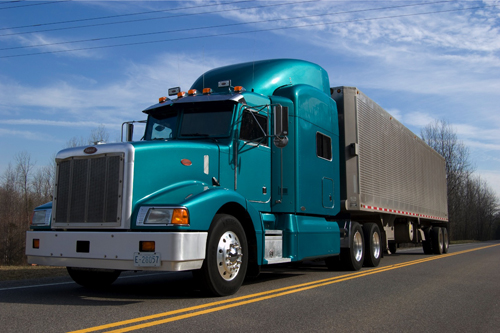|
|
|
|
|
|
|
|
Table of Contents
Click to jump to section |
|
This information is listed to help assist 49 CFR Part 40 regulated employees and employers with the information necessary to aide in the successful completion of the Return-to-Duty and Safety Sensitive Functions process. This information is meant as a quick reference to various important information and is not intended as a comprehensive list of all situations or expectations for employees covered under 49 CFR Part 40. For complete information refer to Federal Register Part II, Department of Transportation (DOT) 49 CFR Part 40. |
What is a SAP?
Disclaimer: A SAP is not employed by, nor has any employment affiliation with the Department of Transportation. A SAP is NOT "certified", "accredited" or "credentialed" by the Department of Transportation.
A SAP goes through a specific training and examination process as outlined by 49 CFR Part 40 to prove knowledge and competency in the skills necessary to assist employees and employers regulated by 49 CFR part 40. This training and examination process is required by the Department of Transportation in order for an SAP to provide these specific and regulated services. It is important to understand that a SAP is not "credentialed", "accredited" or "certified" by the Department of Transportation. For more information on this matter please see section 281 of 49 CFR Part 40 (49 CFR Part 40.281) describing the requirements, training and examination requirements and responsibilities of a SAP, or see parts of this section on the right side of this page. According to 49 CFR Part 40.281: To be permitted to act as a SAP in the DOT drug and alcohol testing program, you must meet each of the requirements of this section: (a) Credentials. You must have one of the following credentials:
A SAP is required to be knowledgeable about this part, the DOT agency regulations applicable to the employers for whom you evaluate employees, and the DOT SAP Guidelines, and you keep current on any changes to these materials. c) Qualification training. You must receive qualification training meeting the requirements of this paragraph (c). (1) Qualification training must provide instruction on the following subjects:
(2) Following your completion of qualification training under paragraph (c)(1) of this section, you must satisfactorily complete an examination administered by a nationally-recognized professional or training organization. The examination must comprehensively cover all the elements of qualification training listed in paragraph (c)(1) of this section.
In the late 1980's, the Office of Drug and Alcohol Policy and Compliance (ODAPC)
was established to advise the Secretary & DOT Agencies
on drug enforcement and drug testing issues. As a result of the 1991 Omnibus
Transportation Employee Testing Act, ODAPC's role was expanded, and today,
employers in aviation, trucking, railroad, transit, pipeline and maritime
industries are covered by ODAPC regulations.
The U.S. Department of Transportation's (DOT) primary safety objective regarding substance abuse is to prevent alcohol and other controlled substance abusers from performing transportation safety sensitive functions. To assist in the process, the substance abuse professional (SAP) is charged with duties important to the evaluation, referral and treatment of employees identified as being positive for alcohol and/or controlled substances or who have refused to be tested. |
Why is a SAP required?Any employee regulated by 49 CFR part 40 who violates these regulations must be immediately removed from safety-sensitive functions, and may not be returned to any safety sensitive functions in the transportation industry until the DOT return-to-duty process is successfully completed. When can an employee return to safety sensitive duties?An employee who has violated one or more of the DOT regulations must receive a follow-up evaluation by the original SAP evaluator to be considered for return to duty status. If the evaluator finds him in compliance with the treatment recommendations and deems him appropriate for consideration for safety sensitive duty, a recommendation may be made to the employer for consideration. This recommendation only recommends that the employee has been found to be eligible for the employer to preform a Return-to-Duty Drug Test for the purspose of determining readiness for a return to safety sensitive duty. The SAP in no way recommends a return to employment which can only be decided by an employer. Must employers give SAP referrals to applicants that test positive?Yes, the DOT regulations mandate that employers provide a SAP referral to any employee performing duties in a safety sensitive position that test positive or violate the regulations. |
The SAP has four primary functions
|
What is the Return-to-Duty Process? |
|
The Process at a "Glance":
|
FMCSA ClearinghouseATTENTION CDL Drivers: The FMCSA now has a driver database called the FMSCA Clearinghouse Database. You should have been informed about it as it went into effect on January 5, 2020. If you are not registered yet with the database and you have a violation you MUST register on the FMCSA Clearinghouse. The SAP Return to Duty process is now verified in the FMCSA Clearinghouse.CDL drivers can register in the FMCSA Clearinghouse here: https://clearinghouse.fmcsa.dot.gov/About 
According to the FMCSA: "The Clearinghouse contains information about drivers with commercial driver’s licenses (CDL drivers) who are covered by FMCSA’s drug and alcohol program. This also includes drivers with commercial learner’s permits (CLPs)."
|

Coast GuardATTENTION Coast Guard regulated employees
When the USCG suspends a certification or license, it usually requires the Coast Guard "Sweeney Cure process". This process is NOT managed by the SAP. For compliance with the cure process, the employee or mariner works with the coast guard investigating officer to ensure compliance with this process. This is NOT considered the Return-to-Duty process and the additional cure process requirements are specific to the USCG.
Among many more requirements, the USCG cure process usually requires a DOT drug screen to be done randomly one time a month for 12 months before the license can be re-issued. This is part of the Coast Guard "Sweeney Cure process". This USCG requirement is NOT considered to be the SAP Follow Up Testing Plan which can ONLY be ordered and managed by the employer. Additionally, each of the Coast Guard required 12 months of random drug tests must be DOT certified drug tests and performed by a DOT certified drug testing facility managed by a MRO. This service can usually be performed by Occupational Medicine Drug Testing facilities and it is the employee's responsibility to arrange this requirement. The DOT regulations advise the employee to consult with a Consortium/Third-Party Administrator (C/TPA) to conduct or manage drug testing. See the FMCSA's page on C/TPA's here: What Are Consortium/Third-Party Administrators? The SAP is NOT affiliated in any way with the coast guard or fully educated on the USCG required cure process. The SAP can only help the employee to meet one of the many additional coast guard requirements which is the requirement for a substance abuse evaluation and/or referral to substance abuse treatment. Ensuring compliance with the additional coast guard cure requirements is solely the responsibility of the employee or mariner who is certified by the coast guard. The employee accomplishes compliance by working with his coast guard officer and complying with the settlement instruction requirements issued to them by the coast guard. Read more about the coast guard's cure process requirements under the positive drug tests section of their Suspension and Revocation FAQ's page. Employees that are required by the Coast Guard to have 12 months of random drug tests are instructed to ensure the following:
1) Contact a local Occupational Drug Testing facility, Medical Review Officer (MRO) or Consortium/Third-Party Administrator (C/TPA) in order to arrange for them to contact you randomly on a monthly basis to perform a DOT certified drug test. See the FMCSA's page on C/TPA's here: What Are Consortium/Third-Party Administrators?
2) Collect the test results which are provided to the employee for their records by the drug testing company. The employee should maintain a record of all drug test results. 3) Once all 12 random DOT certified drug tests are completed, the employee submits the results to the Coast Guard investigator working their case for review and confirmation. |
Drug Screens
The SAP does NOT perform any drug tests, DOT or non-DOT and is not authorized to do so.
The SAP may require that a non-official PERSONAL laboratory drug test be performed and negative results submitted to the SAP in order to ensure a negative test result prior to being deemed compliant with the SAP Return to Duty Process and being deemed eligible to have an employer perform an official Return-to-Duty test. If a negative laboratory result will be required, the employee is instructed to contact a local Occupational Drug Testing Facility to request a PERSONAL drug test for the sole purpose of verifying that the employee is free of drugs and can test negative on future tests. Non-DOT and DISA
The SAP (Substance Abuse Professional) mission is to provide the professional services necessary to aid in the successful implementation of the SAP Return to Duty Process to safety sensitive employers & employees regulated by the Department of Transportation rule, 49 CFR Part 40 "Procedures for Transportation Workplace Drug and Alcohol Testing Programs".
Some cases may not be "DOT" cases and may be "Non-DOT" as in the case of managed drug testing organizations such as "DISA". All cases that involve a safety sensitive employment related drug testing violation are treated as safety sensitive whether DOT or non-DOT. DISA URINE DRUG TESTS: Cannabinoids can store in the body for an extended period of time. DISA will suspend persons who test positive on a RTD test for up to a period of 3 years. For these reasons, and in order to attempt to ensure your protection, if you tested positive for Cannabinoids on a DISA UDS test you will most likely be required to submit a copy of a negative test result on a personal drug test performed by a lab, usually an Occupational Medicine testing company, before any RTD process completion paperwork will be sent to DISA. Also, it is important to understand that DISA tests test more stringently than the DOT standard 50/15 ng/ml, so an employee can test negative on a DOT test but positive on a DISA test as the THC is working out of the system although there has been no new use. For this reason it is a good rule to wait as long as possible (typically 60 - 90 days) before taking a DISA return-to-duty test after the last exposure to Cannabinoids. |
CBD and Medical Marijuana
From the FMCSA Compliance Safety and Accountability page (FMCSA CSA): "Employers and drivers are reminded that 49 CFR Part 40 does not authorize the use of Schedule I drugs, including marijuana, for any reason. A physician recommendation for medical marijuana or use of a CBD product is not a legitimate medical explanation for a laboratory-confirmed marijuana positive result."
CBD
Any employee who is subject to the Department of Transportation’s drug testing regulations should exercise caution when using any CBD product. CBD products can contain THC and the result can be a positive test result meaning a drug test violation. Under the "Farm Bill" any hemp derived product is allowed to contain up to "0.03%" tetrahydrocannabinol (THC). THC stores in fat cells and even this amount can build in the body to the point of testing positive for THC on a drug test. All employees subject to the DOT testing regulations are responsible to ensure they DO NOT test for THC on any drug test.
Review the USDOT "CBD" Notice here: USDOT "CBD" Notice Medical Marijuana
USDOT DOES NOT authorize the use of medical marijuana and any drug test that tests positive for THC is considered a violation. From the USDOT's Notice on medical marijuana - "The Department of Transportation’s Drug and Alcohol Testing Regulation – 49 CFR Part 40, at 40.151(e) – does not authorize “medical marijuana” under a state law to be a valid medical explanation for a transportation employee’s positive drug test result." This means that Medical Review Officers (MRO's) are prohibited from verifying a negative result for THC based on "medical marijuana". Any amount of THC that tests positive in a drug test is considered a violation whether it is due to medcial marijuana or not.
Review the USDOT "Medical Marijuana" Notice here: USDOT "Medical Marijuana" Notice |
|
|
The Steps of the SAP Return-to-Duty Process:Please note that the SAP only performs an Initial Evaluation, assigns a recommended course of action, verifies compliance through a Follow Up Evaluation, prescribes a Follow Up Testing Plan, and reports this to an employer. The RTD Process is not completed until an employer performs a RTD Test and the Follow Up Testing Plan and the employee tests negative on all tests. 1) Initial Evaluation: (completed by the SAP) In-depth clinical evaluation and treatment recommendations, reported to the employer and/or federal administration. If the employee does not successfully complele the Initial Evaluation recommendations, the employee is not eligible to return to safety-sensitive functions. 2) Referral / Recommended Course of Action: (assigned by the SAP) taking into account, the severity of need, work schedule, location and cost. 3) Tracking: follows employees through treatment, or recommendations to ensure compliance and reports progress to employer. 4) Follow-Up Evaluation: (completed by the SAP) to determine if the employee has complied with the Substance Abuse Professional's recommendations. Follow-up testing and an after care plan may be scheduled at this point. 5) Continuing Treatment / Aftercare Recommendation: when appropriate once the employee has returned to a safety-sensitive position. 6) Follow-Up Testing Plan: (provided to the employer by the SAP) Note: As defined and regulated in 49 CFR Part 40, the Follow-Up Testing Plan is provided to the employer if the SAP determines that the employee has successfully complied with the recommendations. It cannot be released to the employee and is implemented by the employer AFTER the employee is determined as compliant by the SAP and the employer returns the employee to safety sensitive duty. The items listed above are the SAP responsibilities and provided by the SAP.
The items listed below are the Employer responsibilities and performed by the Employer.
7) Return to Duty Drug Test (can only be ordered and completed by the employer) Note: As defined and regulated in 49 CFR Part 40, the employer must order a Return to Duty drug test after receiving the SAP RTD completion paperwork with the Follow Up Testing Plan for the purpose of establishing eligibility of returning to safety sensitive duty. The employee must test negative in order to be eligible to be reinstated to safety sensitive duty. (Employers are not obligated to hire, or put back to work, employees who are participating in the RTD Process). All FMCSA employers who employ employees who are in the RTD Process MUST enter the negative test result date INTO THE CLEARINGHOUSE (this is Step 5 of the 6 step FMCSA Clearinghouse process). The SAP only determines compliance with the recommendations, eligibility and readiness for a Return-to-Duty drug test and the Follow Up Testing Plan prescription. The SAP DOES NOT determine anything resembling a "fit for duty" determination. If the SAP reports to an employer that the employee has successfully complied with the recommendations, the employer will decide whether or not to order a return-to-duty test for the employee . (Employers are not obligated to take the employee back and new employers are not obligated to hire employees who are participating in the RTD Process.) 8) Follow-Up Testing Plan Implementation (can only be perfomed and completed by the employer) As defined and regulated in 49 CFR Part 40, the employer must implement the Follow Up Testing Plan as prescribed by the SAP once the employee returns to safety sensistive duty for the purpose of verifying continued compliance with safety sensitive duty. (Employers are not obligated to hire, or put back to work, employees who are participating in the RTD Process). All FMCSA employers who employ employees who are in the RTD Process MUST enter the date of the last Follow Up Test (completion date) INTO THE CLEARINGHOUSE (this is Step 6 of the 6 step FMCSA Clearinghouse process). The Follow Up Testing Plan is implemented by the employer AFTER the employee is determined as compliant by the SAP and the employer returns the employee to safety sensitive duty. The Follow Up Plan is NOT to be considered the same testing requirement of 12 months of random screening as often required by the USCG in their "Sweeney Cure" process. The Follow Up Testing Plan is required by 49 CFR Part 40 to be implemented by the employer as outlined in 49 CFR Part 40. In order to setup the 12 month random screening as required by the USCG, employees are encouraged to contact an Occupational Medicine drug testing company which will perfom random DOT drug testing. If the employee is an owner / operator who contracts services then the DOT regulations advise the employee to consult with a Consortium/Third-Party Administrator (C/TPA) to conduct or manage the Follow Up Drug Testing Plan. See the FMCSA's page on C/TPA's here: What Are Consortium/Third-Party Administrators? Substance abuse treatment (outpatient or inpatient) will be recommended if it is indicated and needed as determined by professional evaluative instruments and guidelines such as the ASAM PPC2 Criteria and DSM 5 severity scales. If treatment is not determined to be needed, then Drug/Alcohol Awareness education in the form of classes, counseling sessions and/or 12 step recovery meeting attendance will be required. An employee who has not successfully complied with the SAP's recommendation may not return to safety-sensitive functions for any DOT employer until the SAP's recommendations have been fully met and the employee is able to provide a negative return-to-duty test.    |
|
|
|
Contact: Questions? |
|
